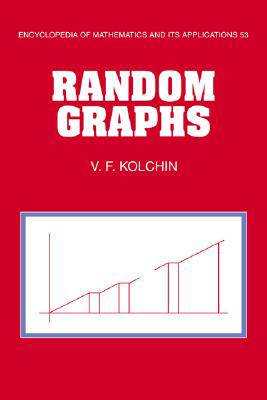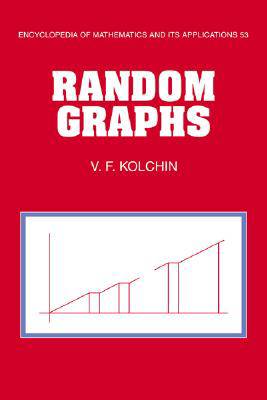
Bedankt voor het vertrouwen het afgelopen jaar! Om jou te bedanken bieden we GRATIS verzending (in België) aan op alles gedurende de hele maand januari.
- Afhalen na 1 uur in een winkel met voorraad
- Gratis thuislevering in België vanaf € 30
- Ruim aanbod met 7 miljoen producten
Bedankt voor het vertrouwen het afgelopen jaar! Om jou te bedanken bieden we GRATIS verzending (in België) aan op alles gedurende de hele maand januari.
- Afhalen na 1 uur in een winkel met voorraad
- Gratis thuislevering in België vanaf € 30
- Ruim aanbod met 7 miljoen producten
Zoeken
Omschrijving
The book is devoted to the study of classical combinatorial structures such as random graphs, permutations, and systems of random linear equations in finite fields. The author shows how the application of the generalized scheme of allocation in the study of random graphs and permutations reduces the combinatorial problems to classical problems of probability theory on the summation of independent random variables. He offers recent research by Russian mathematicians, including a discussion of equations containing an unknown permutation, and the first English-language presentation of techniques for solving systems of random linear equations in finite fields. These new results will interest specialists in combinatorics and probability theory and will also be useful to researchers in applied areas of probabilistic combinatorics such as communication theory, cryptology, and mathematical genetics.
Specificaties
Betrokkenen
- Auteur(s):
- Uitgeverij:
Inhoud
- Aantal bladzijden:
- 268
- Taal:
- Engels
- Reeks:
- Reeksnummer:
- nr. 53
Eigenschappen
- Productcode (EAN):
- 9780521440813
- Verschijningsdatum:
- 13/11/1998
- Uitvoering:
- Hardcover
- Formaat:
- Genaaid
- Afmetingen:
- 163 mm x 243 mm
- Gewicht:
- 544 g

Alleen bij Standaard Boekhandel
+ 426 punten op je klantenkaart van Standaard Boekhandel
Beoordelingen
We publiceren alleen reviews die voldoen aan de voorwaarden voor reviews. Bekijk onze voorwaarden voor reviews.









